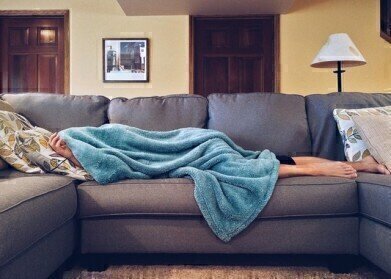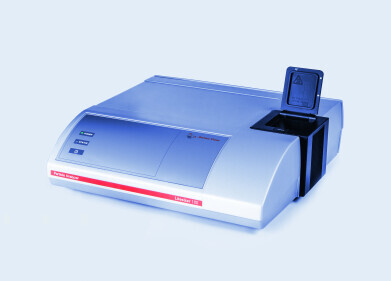Laboratory Products
Can Adults Be Rocked to Sleep?
Feb 07 2019
We all know that babies love to be rocked to sleep, whether that’s in a cot, a sleeper, or just their parent’s arms. However, a new study suggests that we may not actually grow out of it. Adults tucked up in a gentle swaying bed for the night appear to get to sleep quicker and enjoy a deeper sleep for longer, according to a new report in Current Biology. Do you think you would benefit from being rocked to sleep? Keep reading to find out more…
Study findings
After an initial study in 2011, Laurence Bayer, a neuroscientist at the University of Geneva, and her fellow colleagues decided to look further into how rocking affects sleep levels. The study focused on 18 healthy young adults who spent a number of nights sleeping in a laboratory. One night was spent sleeping on a rocking bed and one night on a stationary bed to compare the different results.
The original study found that adults napped better when rocked to sleep. The custom-built contraption moved around 10.5 centimetres every four seconds, gently swaying the participant to sleep. But it wasn’t clear from this study whether rocking would help to improve sleep across an entire night.
EEG monitoring
To dig deeper, Bayer and her team monitored participants’ brain activity using an EEG, which can detect electrical signs of certain stages of sleep. The results showed that participants fell asleep quicker when being rocked, taking an average of 10 minutes to reach a light state of non-REM sleep, known as N2.
In comparison, participants took an average of 16.7 minutes to reach N2 when sleeping in the stationary bed. Those sleeping in a rocking bed also spent more time in a deep, non-REM state of sleep, named N3 and woke up less frequently than in a stationary bed.
A cognitive neuroscientist from Harvard Medical School, Robert Stickgold, believes the results are what was to be expected, saying “we’ve been rocking our babies for thousands of years now. We know it helps them fall asleep’.
Can rocking improve memory?
The study also tested for any significant memory improvements depending on whether the participant was rocked to sleep or not. Before going to bed, participants learned pairs of words to be tested on the following morning. After spending the night in the rocking bed, the participants were generally better at remembering the words, suggestive of a higher quality sleep.
Bayer believes these results could be particularly helpful for those suffering from insomnia. “If rocking can help this population to sleep better, it will be a nice alternative or a natural complement” to sleeping pills or medicines. To find out more about the delivery of medication and how it can be improved, take a look at the article ‘Accurate Measurements of Biological Nanoparticles’.
Digital Edition
Lab Asia 31.2 April 2024
April 2024
In This Edition Chromatography Articles - Approaches to troubleshooting an SPE method for the analysis of oligonucleotides (pt i) - High-precision liquid flow processes demand full fluidic c...
View all digital editions
Events
Apr 28 2024 Montreal, Quebec, Canada
May 05 2024 Seville, Spain
InformEx Zone at CPhl North America
May 07 2024 Pennsylvania, PA, USA
May 14 2024 Oklahoma City, OK, USA
May 15 2024 Birmingham, UK



.jpg)














